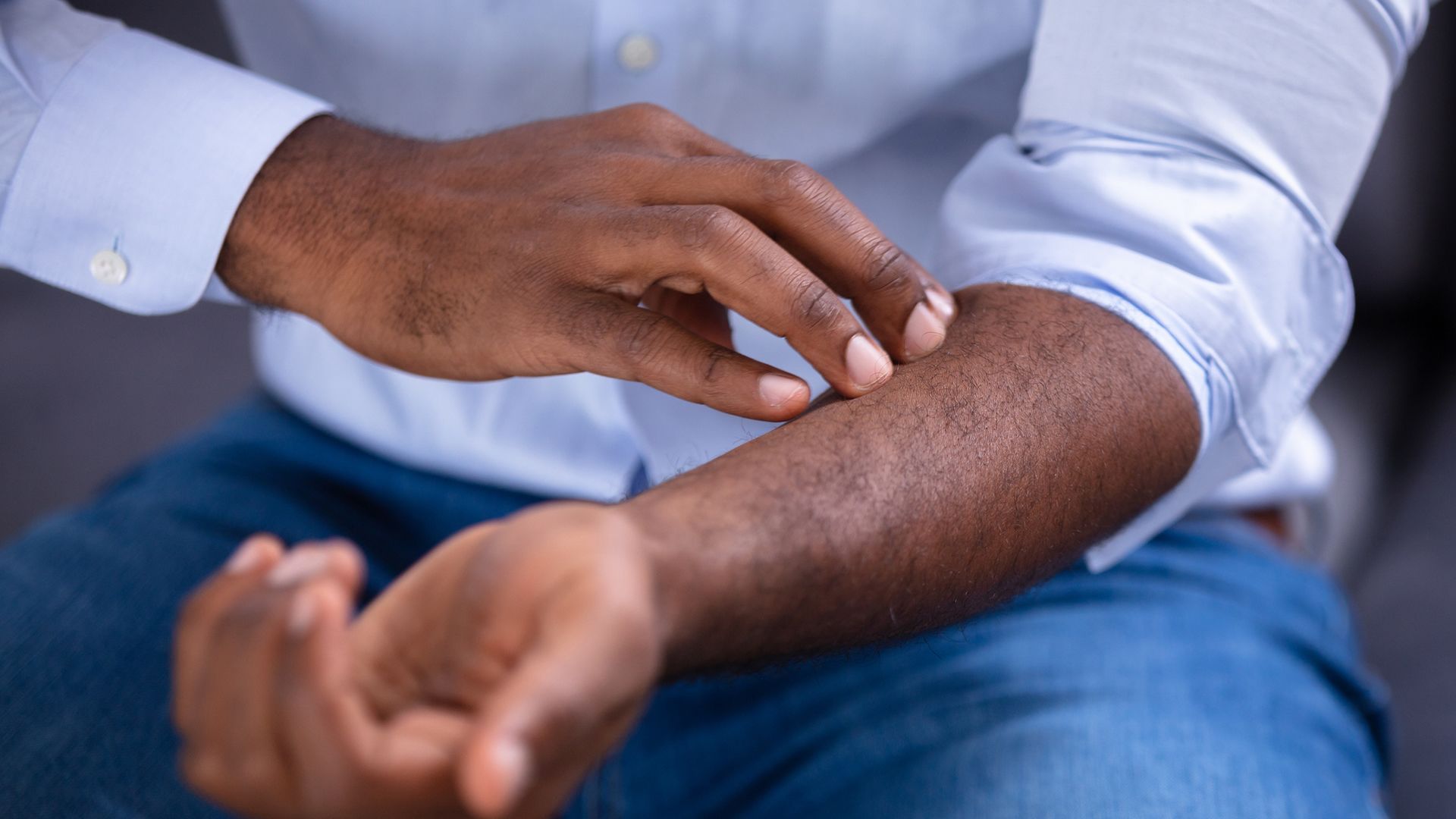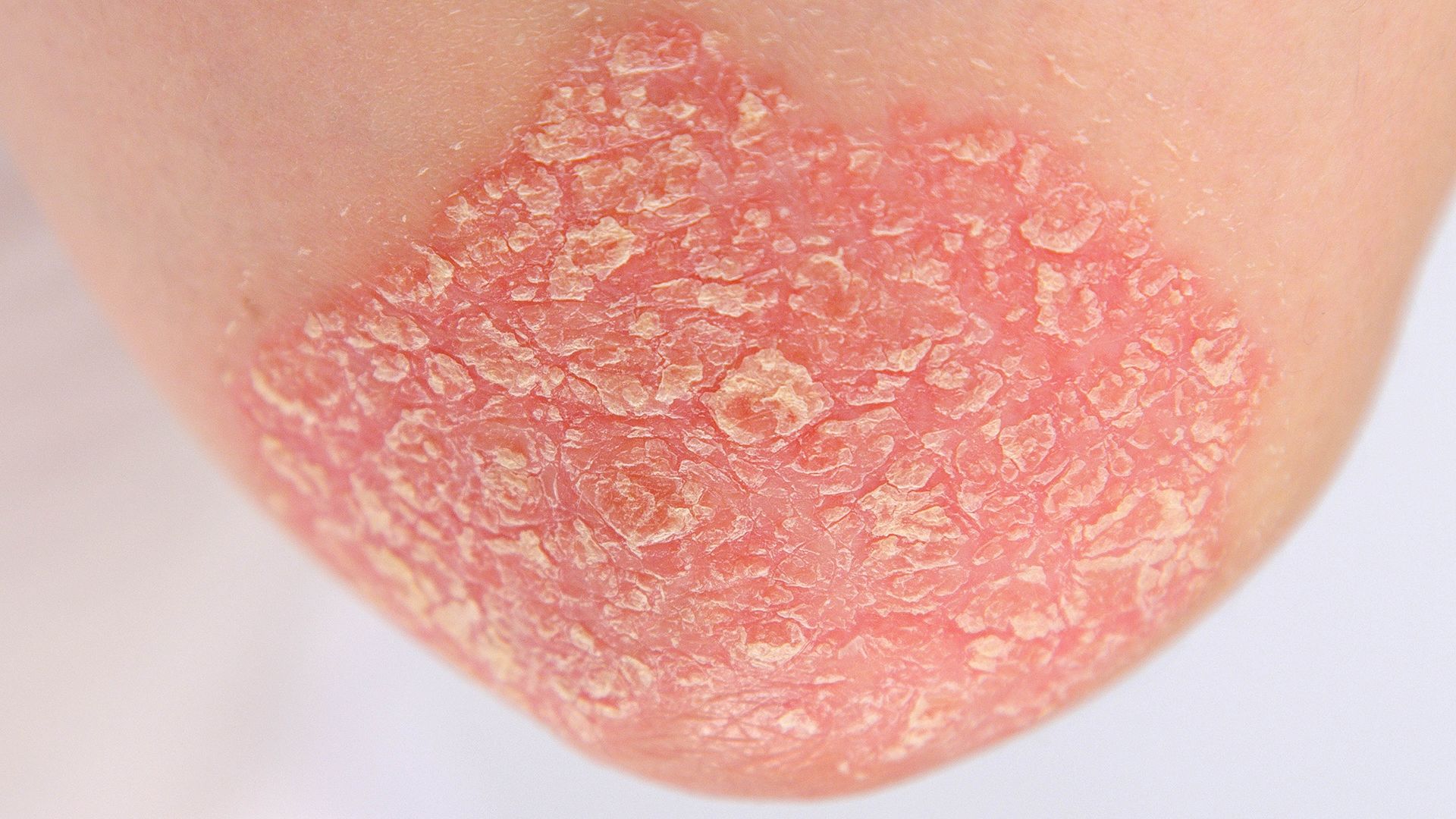There is no cure for psoriasis, but the disorder can be managed, and many people who have psoriasis are able to achieve clearer skin. One of the key elements of successfully managing psoriasis is avoiding triggers—things that cause psoriasis symptoms to flare. While triggers can be different for everyone, here are six common psoriasis triggers that you will want to try and avoid:
Stress
Some people with psoriasis are able to associate the onset of the disorder with a stressful life event. Stress is also known as a psoriasis trigger, and known to exacerbate psoriasis symptoms. Because psoriasis can be a stressful condition to live with, it is recommended that patients work on ways of coping with stress. This can be as simple as setting aside time to enjoy a hobby or listen to music. It can also be a mindful activity such as exercise or meditation. Therapy, counseling, and support groups for psoriasis patients are other options.
Injuries
Psoriasis can appear after an injury to the skin—such as a burn, sunburn, abrasion, puncture, or cut. This includes tattoos and piercings. Some people with psoriasis report that the onset of symptoms occurs after an injury (something known as Koebner's phenomenon). Injuries to the joints, such as blunt trauma or sprains, are also associated with the onset of psoriatic arthritis, a type of arthritis that affects people with psoriasis.
Certain medications
It is important to talk to your healthcare provider about any an all medications that you take, including over-the-counter medications and dietary supplements. All of your healthcare providers should be aware that you have psoriasis when prescribing medications. A number of medications, including lithium, antimalarial drugs, certain NSAIDs, and therapies for high blood pressure and heart disease may trigger psoriasis flares.
Infections
Anything that impacts the functioning of your immune system could trigger psoriasis or exacerbate existing psoriasis symptoms. This includes illnesses and infections. Take precautions to avoid illness, such as getting an annual flu shot and staying up to date on vaccinations, as well as washing your hands, eating well, getting enough sleep, and living a healthy lifestyle.
Tobacco and alcohol
If you have psoriasis, you'll want to avoid tobacco and alcohol—cigarette smoking and excessive quantities of alcohol can increase the severity of psoriasis and trigger flares.
Weather
Cold weather, low humidity, and less sun exposure during the winter are some of the potential reasons winter can exacerbate psoriasis flares. People with psoriasis may want to moisturize more frequently during the winter and invest in an indoor humidifier. Keeping a living space at a comfortably warm temperature can also help. Year-round, people with psoriasis will want to pay attention to the fabrics they wear, as certain fabrics may aggravate symptoms.
Everyone is different
It is important to keep in mind that psoriasis is a different experience for everyone. While these are some of the common psoriasis flares, they do not apply to every person with psoriasis, and there are many more potential triggers that can cause flares.
The most important thing you can do to manage psoriasis is to work with a healthcare provider to treat the condition. Keeping a psoriasis journal, which keeps track of your day-to-day symptoms and potential triggers, can help you and your healthcare provider identify what makes psoriasis symptoms better, and what makes psoriasis symptoms worse.






